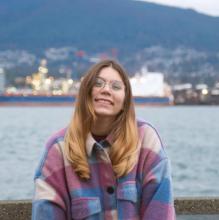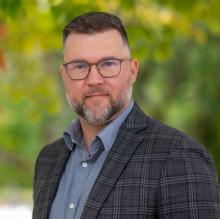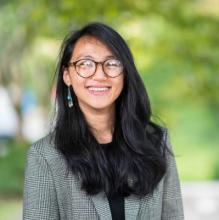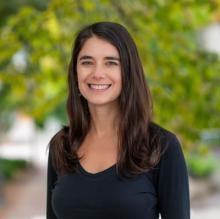I am using spatial statistics within a political ecology framework to assess the national distribution of agroecological management practices across diverse farm types (meaning, farms of various sizes and production systems) in southern Brazil, and carrying out fieldwork to investigate the barriers that different farms face when transitioning from industrial to agroecological management.
Research Description
The industrial agri-food system is a major contributor to global socioecological problems, and equitable and sustainable agricultural development strategies are urgently needed. One alternative with the potential to both lessen agriculture’s environmental footprint and support farmer livelihoods is agroecology, defined as the application of ecological principles to the design of agricultural systems in a way that respects diverse local contexts. Yet despite the international attention agroecology has received, farmers’ uptake of agroecological management practices (such as reduced tilling and crop rotation) has remained relatively low. Using Brazil as a case study, I am using spatial statistics within a political ecology framework to assess the national distribution of agroecological management practices across diverse farm types (meaning, farms of various sizes and production systems). I am also carrying out fieldwork in southern Brazil to investigate the barriers that different farms face when transitioning from industrial to agroecological management, as well as which incentives have the potential to encourage these transitions.
What does being a Public Scholar mean to you?
Power dynamics are present in all research and scholarship, and transparency is an important step in both checking power and in building trust. Trust is integral for bringing together diverse stakeholders in an inclusive manner to solve complex, multifaceted societal problems. So, to me, being a Public Scholar means conducting research in the public interest in a way that is reflexive and transparent: about who we are, what we are investigating and why, who has been involved in decision-making around this (or hasn't), who the research benefits (or doesn't), and who is supporting (or funding) us in these efforts. Public scholarship prepares us, as researcher-citizens, to facilitate transparent, open, and respectful dialogues about the kind of society/societies that we would like to see for ourselves in the future, which in turn provides us with lines of questioning we can pursue for how to get there.
In what ways do you think the PhD experience can be re-imagined with the Public Scholars Initiative?
Being able to access support from the PSI helps to broaden the scope of the PhD program by encouraging scholars to build a suite of skills that translate to both academic and non-academic contexts. In particular, it allows for building these skills by providing funding to students who are working on community-based projects – which typically require a large time investment and for which traditional PhD programs don’t always leave adequate room.
How do you envision connecting your PhD work with broader career possibilities?
As a PhD student who is passionate about doing community-based inter- and trans-disciplinary work (and who plans to continue doing this type of work post-graduation), I deeply value being able to invest the time and resources in building trusting, equitable, and lasting relationships with those involved in my research project in southern Brazil – including professors, students, practitioners, extension agents, and farmers. I am hoping that my participatory PhD work positions me to continue working as a researcher-activist in the field of agroecology, and particularly on supporting transitions to using sustainable agricultural practices – whether that be through extension, policy advocacy, or another form of public scholarship (or, ideally, a combination of all three).
How does your research engage with the larger community and social partners?
My work is grounded in a community-based research ethos, so I am actively trying to cultivate relationships in the communities I’m working with in southern Brazil. This has led to ongoing conversations about my research with community partners there – namely, with my partner organization, an NGO called the Centre for the Study and Promotion of Collective Agriculture (CEPAGRO); with farmers in the research regions; and with professors at the Federal University of Santa Catarina. All of these different groups have been able to provide insights on the direction of my research, which has led to the refinement of my proposal, the methods for on-the-ground data collection, and the types of materials that will be developed. My hope is that we can achieve richer and more relevant insights and outputs for everyone by co-designing the research program, and to start to move away from what has been the historically colonial nature of cross-cultural research.
Why did you decide to pursue a graduate degree?
I decided to pursue a PhD after working as a consultant for the US government's Feed the Future Initiative for almost two years. My role as a consultant was to facilitate knowledge-sharing amongst international agricultural development practitioners, which reinforced my belief in the importance of accessible and practical research. It was during this time that I realized, as a person motivated by praxis, I wanted to return to academia to get involved in participatory agricultural projects that bridge research, practice, and communication.
Why did you choose to come to British Columbia and study at UBC?
I wanted to study at UBC for many reasons. First, I was deeply drawn to the work of my supervisor, Dr. Hannah Wittman, who is a leading scholar in the fields of sustainable agriculture and rural sociology. Second, I felt strongly that IRES (my program) was the right setting for me to further develop as a person, a professional, and an academic. Third, I was very impressed with both UBC’s and the city of Vancouver’s sustainability mandates. As a sustainability student, I wanted to study in a place that puts these principles into practice. Last but not least, I love the Pacific Northwest and wanted to make it home base.
Public scholarship prepares us, as researcher-citizens, to facilitate transparent, open, and respectful dialogues about the kind of society/societies that we would like to see for ourselves in the future.




